Stone Forest in Madagascar
By Pictolic https://pictolic.com/article/stone-forest-in-madagascar.htmlThe Tsingi du Bemaraha Nature Reserve is located on the west coast of Madagascar and is famous for its amazing stone forest. The area of the reserve is 666 square kilometers and is part of the UNESCO World Heritage Sites. The landscapes here are simply fascinating – giant rocks, and preserved forests of mangroves, as well as many other wonders.
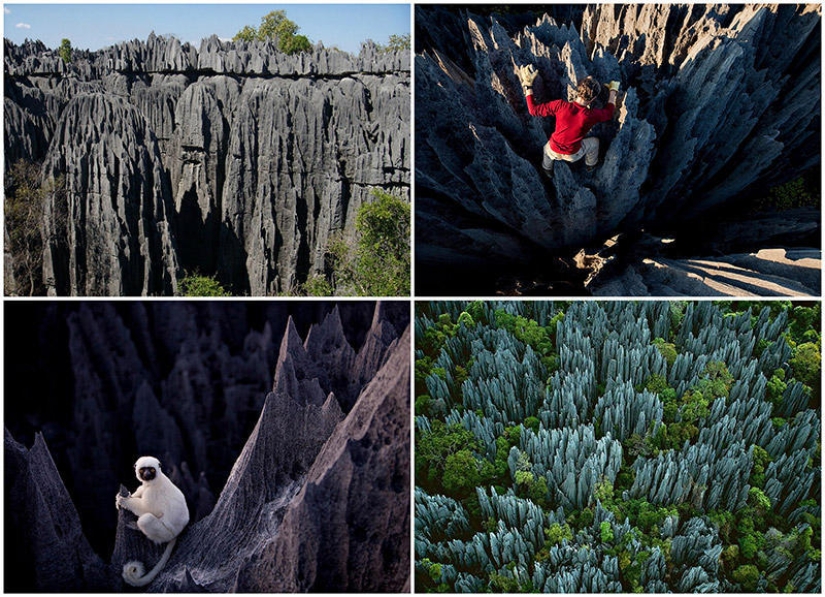
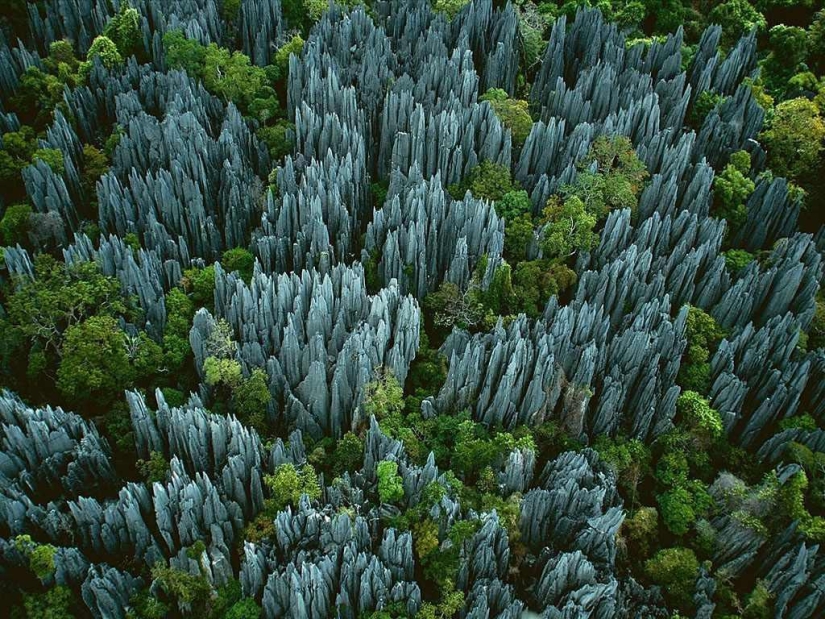
The reserve is a plateau consisting of a stone forest of sharp karst spires formed during the erosion of softer limestone rocks.
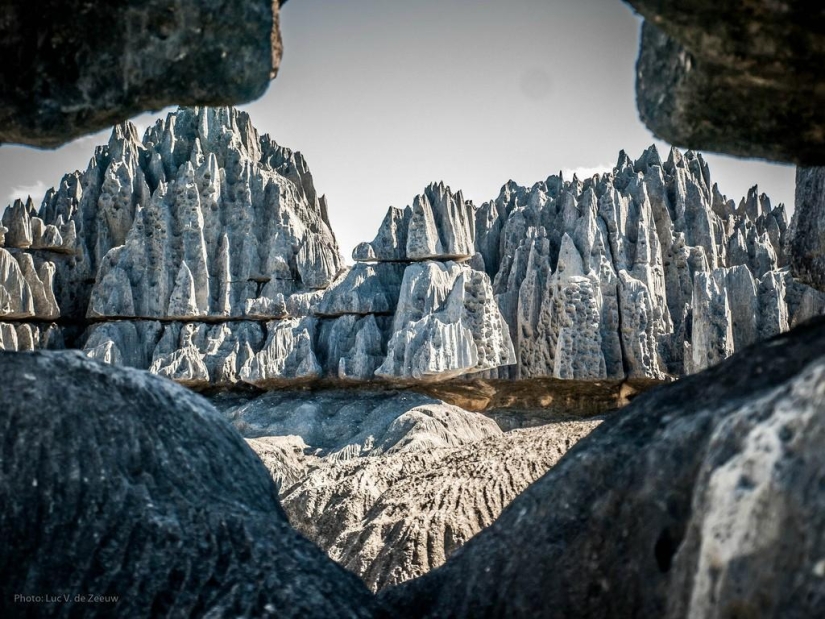
The stone pillars of Qingzhi rise to a height of up to 70 meters, their tops are not covered with any vegetation and are razor sharp.
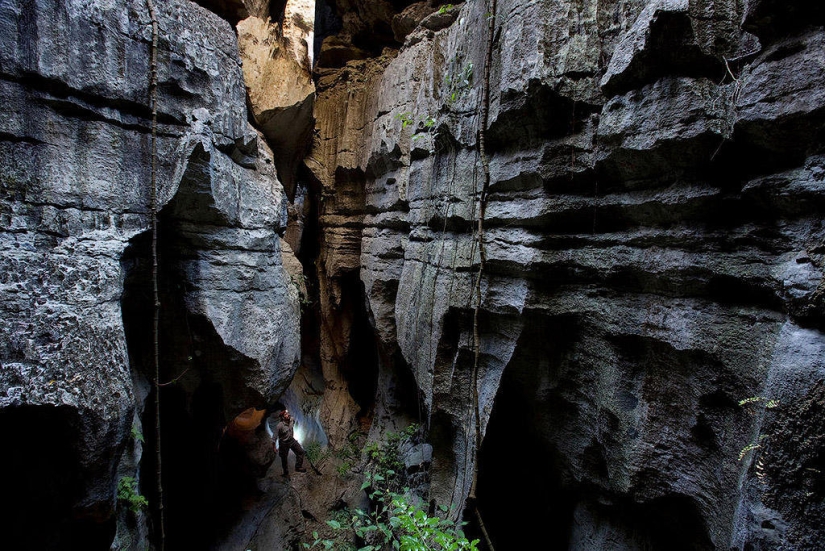
At lower altitudes, you can only see the roots of particularly tenacious shrubs and plants.
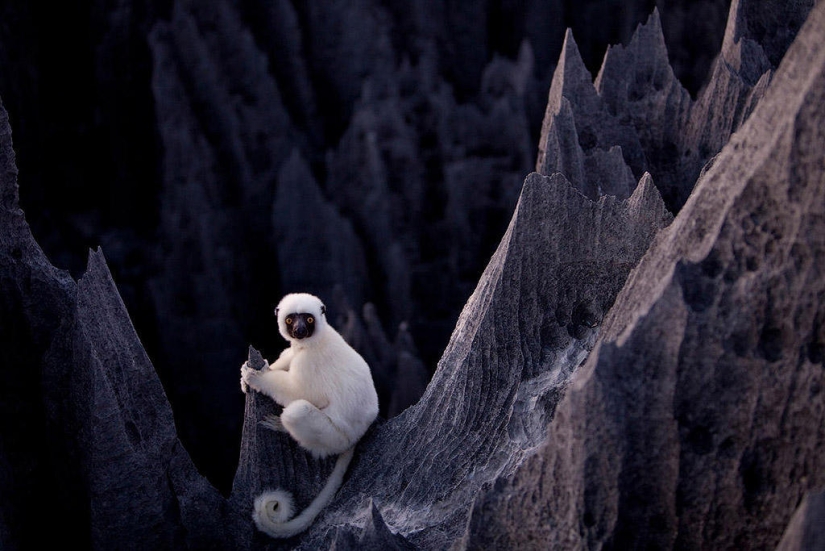
A whole forest of karst peaks up to 50 meters high serves as a safe habitat for white lemurs, unique in nature.
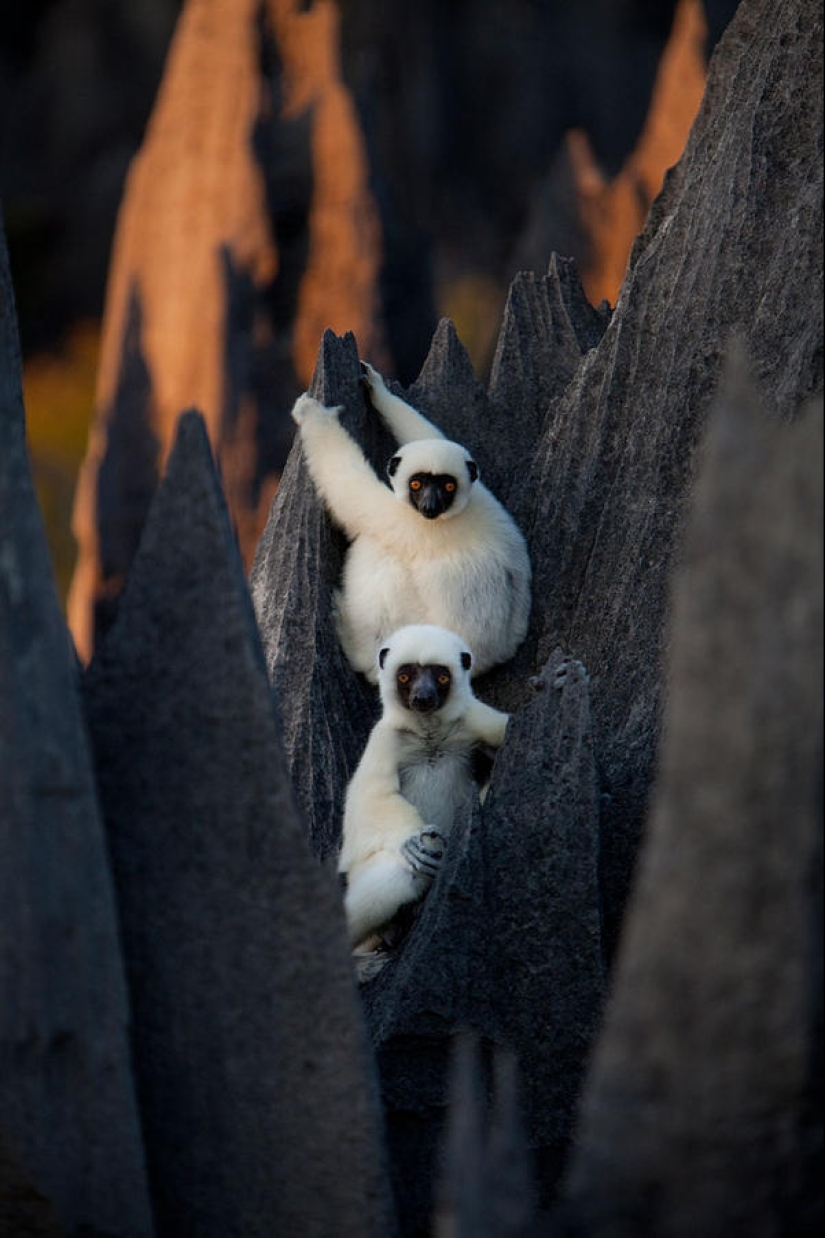
The word "qingzhi" in the local dialect of Malagasi serves as a description of the karst barren lands of Madagascar. It is translated into English as "a place where you can not go barefoot".
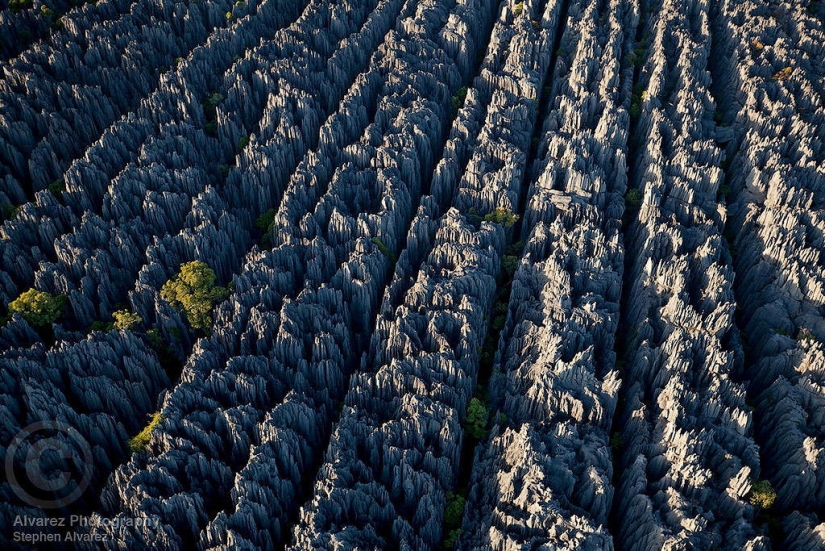
In the lower reaches of this tangle of forest canyons and karst caves, a huge variety of flora and fauna is raging, with many rare animals and plants, many of which live only in Madagascar
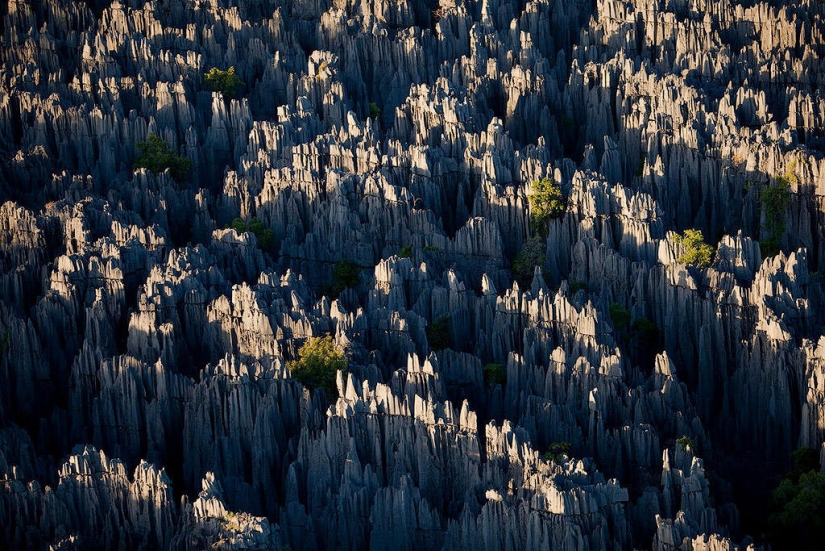
In 1990, this unique place was included in the UNESCO World Heritage List, and on the island itself, Tsingi de Bemaraha became a national reserve in 1927.
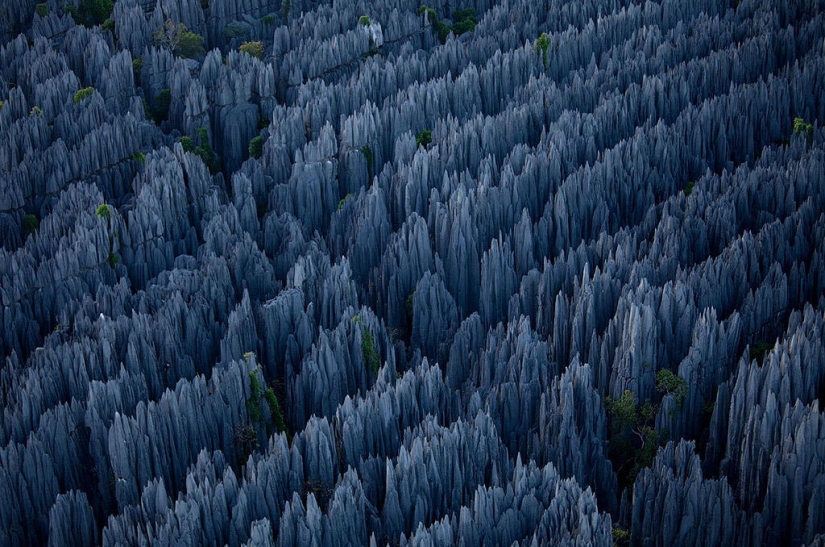
The plateau is bordered by a picturesque canyon and the Manambolo River flowing through it. Rare and endangered species of birds and lemurs have found their refuge in the mangroves growing on the pristine shores of the lake and the river flowing into it.
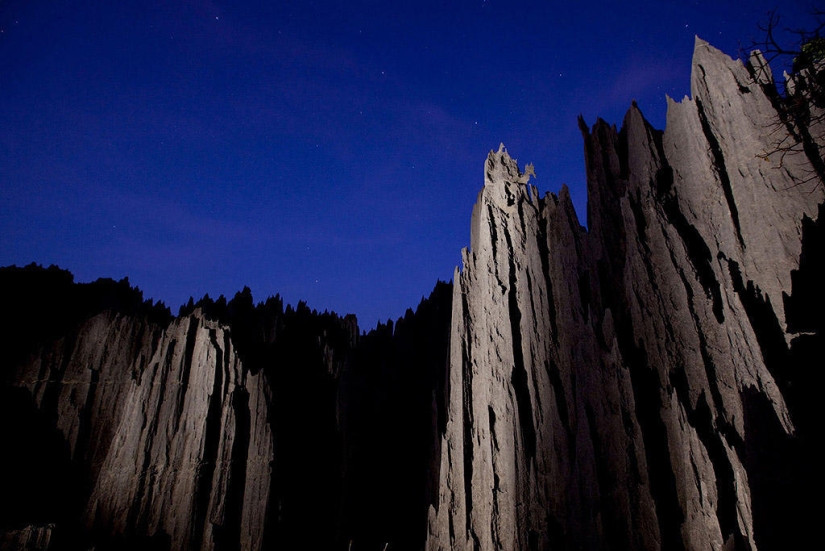
The Tsingi de Bemaraha Nature Reserve covers an area of 152 thousand hectares and is the largest protected area in Madagascar.
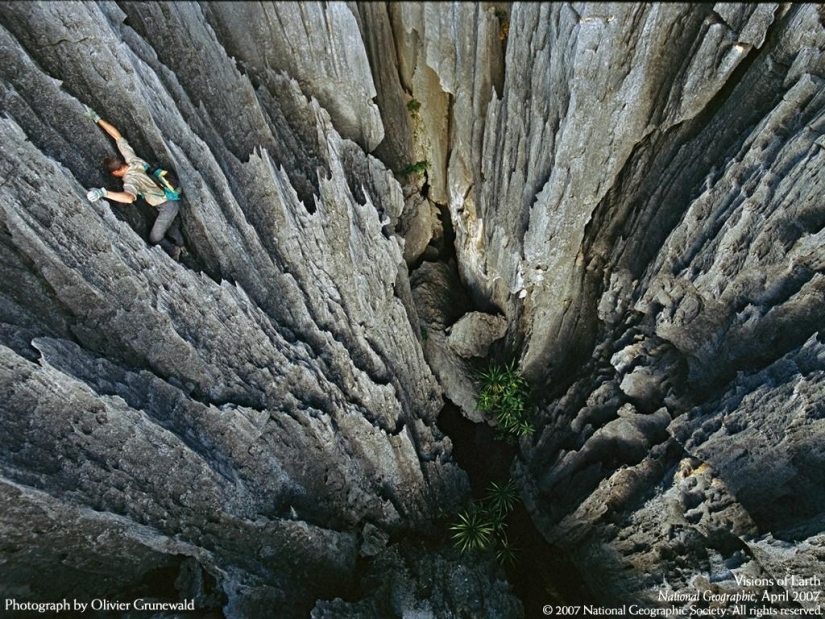
The age of this unusual place created by nature is about a million years.
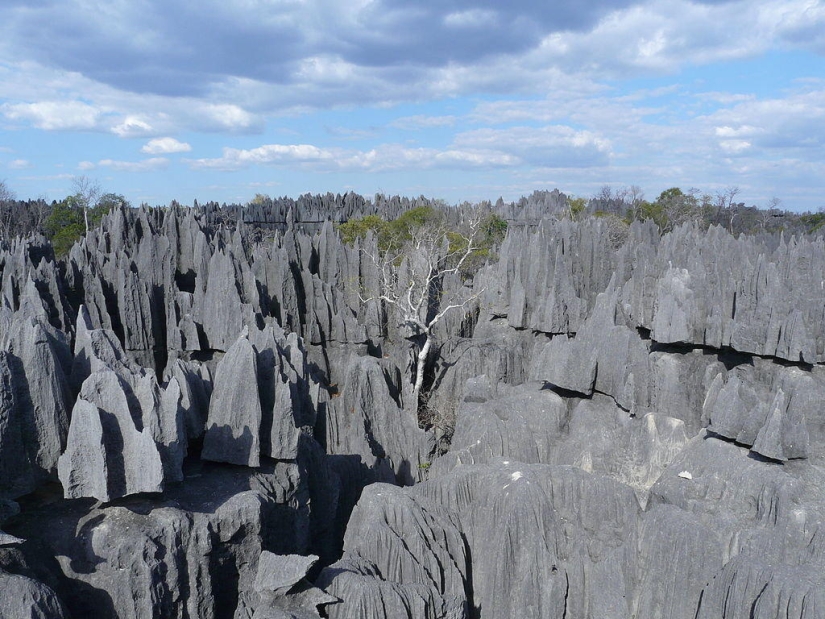
Some parts of the nature reserve were opened to tourists only in 1998, and some are closed until today.
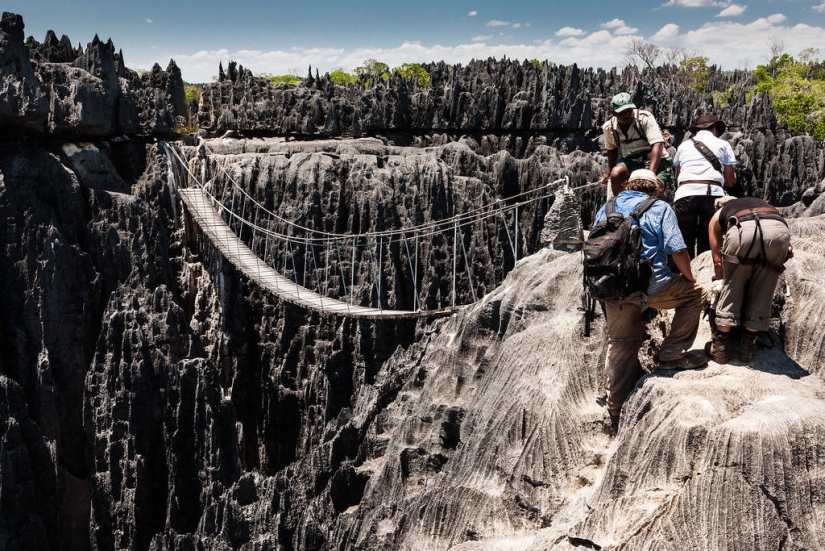
Tourists can admire the unusual beauty of the Stone Forest by climbing the peaks with the help of climbing equipment, or from observation platforms. There are no other options.
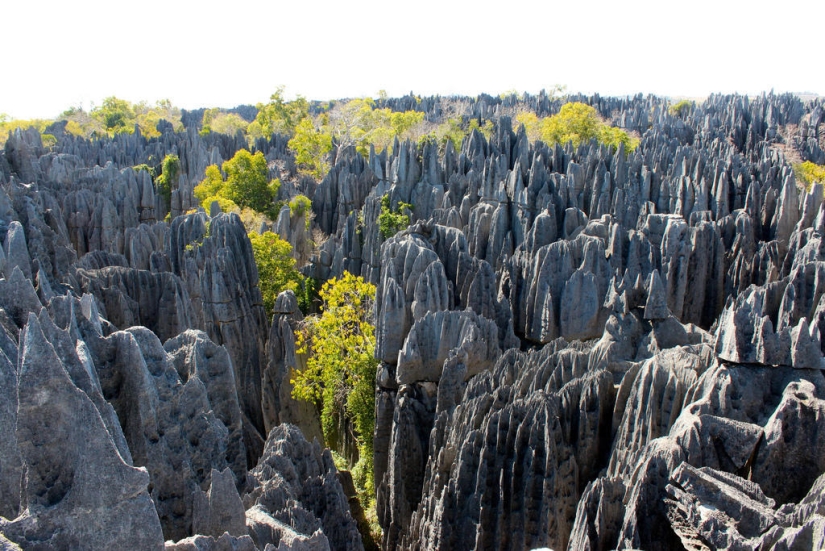
Local residents say that there is not a single flat piece of land throughout the vast territory of the reserve.
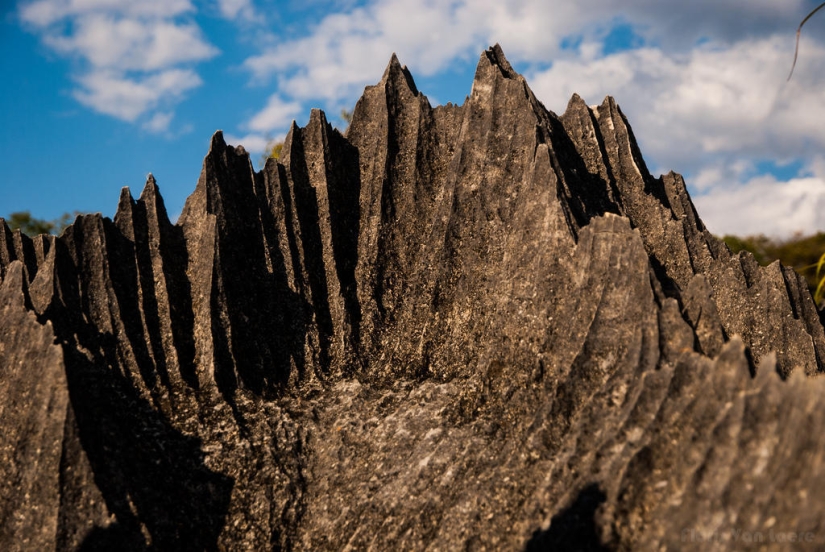
This landscape is inaccessible only to humans, but it helps rare species of plants and animals to survive, especially lemurs, which live here in large numbers.
Keywords: Nature | Africa | Madagascar | Nature reserve | Forest | Rocks
Post News ArticleRecent articles

Hugs are much more useful than it may seem at first glance. Research shows that hugging helps people both psychologically and ...

You probably think now that this can not be, because we are used to the fact that wolves live in the woods and have nothing to do ...
Related articles

With the beginning of the era of Great geographical Discoveries, Spain and Portugal rushed to saw the world, establishing their ...

Do you like to expand your horizons and learn something new all the time? Commendable! Then you've come to the right place. We have ...

There is a group on the Reddit site with 7 million members, and they are all united by the desire to constantly learn something ...

In every person's life, the first, uncertain step is always also the most important. With cars exactly the same parsley. Without ...